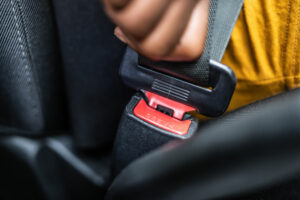British researchers are developing a “brain breathalyzer” device used to detect concussions on the sidelines, according to the BBC.
Breathalyzers are currently used to detect blood alcohol content. But neurosurgeon Tony Belli and Dr. Michael Grey from the University of Birmingham say you can reengineer a breathalyzer to detect other things. It simply needs to be refined to detect very small amounts of certain “biochemical compounds.”
“These biochemical compounds from the brain can be measured in a number of different fluids – for example, saliva and breath,” explained Belli. The breath test detects chemicals released by an injured brain into the bloodstream. The test could potentially detect these chemicals within five or ten minutes of the injury.
The subjective nature of concussions is what makes them so difficult to diagnose and treat. Psychological tests and waiting periods have been the typical course of action for a brain-injured athlete. But “[players] have come out and said it is easy to fudge this test,” says Belli.
According to the Toronto Rehabilitation Institute, 50,000 Canadians sustain brain injuries each year with 30% of all traumatic brain injuries sustained by youth, many while participating in sports and recreational activities.
“It is really important that we protect players from themselves,” says Grey. “We are talking about someone with mild brain injury when we are looking at concussion. They are not in a position to decide whether they are fit to play.”







